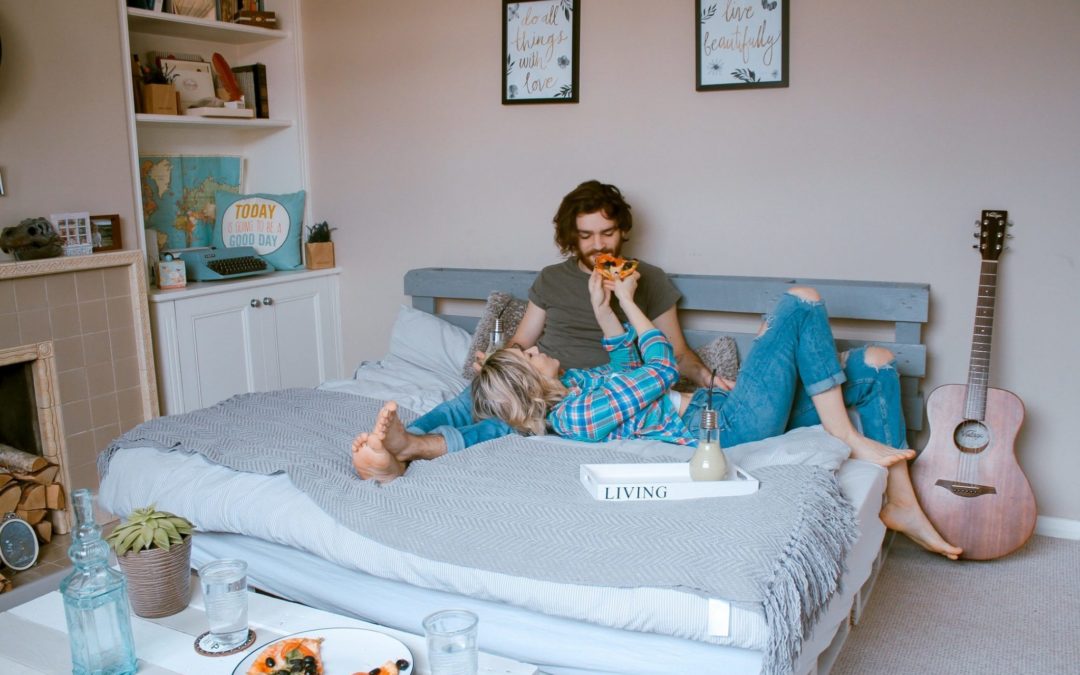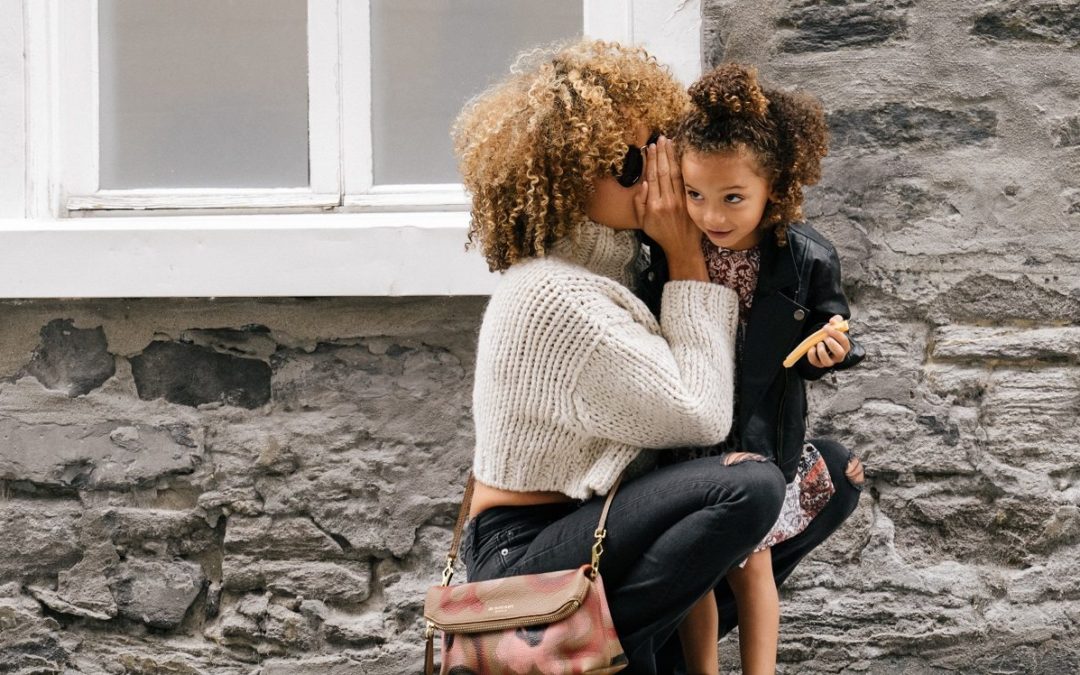
Instant Turn Offs and Ons
Instant Turn Offs and Ons
Fairy stories have a lot to answer for. Those anything-but-innocuous tales parents glibly recite at bedtime invariably rely on a single moment where two (generally outstandingly good looking) people fall instantly in love with as much volition as a carbon atom bonds with a hydrogen atom due to some law of physics. In the story of Snow White, the handsome prince succumbed in precisely this way despite the fact that Snow White lay pale and lifeless in a coffin, all but dead save for a coroner’s certification to the fact. He even convinced the seven dwarves to give her to him, to what end, one can only shudder to imagine. Apparently, the absence of any vital signs was not a turn-off in the slightest.
Such stories engender unrealistic expectations. I spent my teenage years searching in vain for love at first sight across crowded rooms where by all accounts eyes meet and destinies are sealed. All I ever saw across crowded rooms were other girls like me who hadn’t yet been asked to dance.
I am leery of claims of love at first sight and not due to any cynicism about love itself, nor an underestimation of the intensity of the reaction we can have to people based on nothing more than a single passing glance.
I speak from experience having personally fallen head over heels in love at first sight, with, for example, the Bondi Vet what with all that sun-bleached hair, delicious charisma and affection for small helpless creatures. Of course this is all one-sided since I’ve never actually met the Bondi Vet. When individuals sport casually swept back blonde hair, dimples and a charming way with Chihuahuas, it is all too easy to ‘fall in love’ with them. These attributes inspire a salivation of the libido, much like one might start to drool at the sight of a particularly delicious chocolate mousse. Upon further inspection and a degree of reflection this reaction habitually turns out to be a small miscommunication between our hormones and the muscular curve of some poor innocent bystander’s gluteus maximus.
Love-at-first sight is lovely and all, especially in the movies, but it is not a reliable indicator of love at all, (not the kind that makes us tolerant of other peoples’ flatulence, bickering parents or snoring). However, it does bear out the axiom my dear granny (MHDSRIP) never missed an opportunity to reiterate especially during a particularly seditious period in my life when I stopped shaving under my arms and painted my fingernails black: ‘the importance of the first impression.’
It is basic grooming and a sensible social precaution to habitually wash one’s hair, brush one’s teeth and to pick the shirt without the curry stains. The reasons are twofold: firstly, you never know who you are going to bump into on your way to the corner café for a loaf of bread and secondly, nobody needs to know what you ate last night the first instant they meet you. It is a case of too much of the wrong kind of information too early on.
If a first impression goes awry, one risks the dreaded instant turn-off. An instant turn-off is that gut-curdling revulsion that hijacks any possible future interest we might otherwise have in someone. Bad smells, and other general exhibitions of a too-familiar relationship with dirt are universal turn-offs. Dirty fingernails for example (especially long ones harbouring a month’s worth of souvenirs) stifle the human desire to be touched. Unless, of course, the hands belong to a mechanic or painter by trade, in which case a bit of ingrained car oil or Dulux velvet sheen might not only be tolerable, but rather manly. If they are the hands of a vet or a doctor, there really is no recovery. None that I am personally aware of.
A crush I’d been developing on a bloke at the gym once came to a giddy halt when I attempted a small conversation with him during a set of quadricep curls. I cannot be sure whether it was the month of garlic I detected on his breath (not a human rights violation, admittedly), or his set of blackened teeth, putting me in the mind of toilet-grime that made me suddenly remember I had a week’s worth of laundry that needed my urgent attention. I didn’t stick around long enough to find out whether he was caring for his dear old mother riddled with Alzheimers, or whether he was on the verge of discovering a cure for breast cancer. Traits I’d been searching for in men for years.
Then some years later when I was on a date, catastrophe struck when our pizzas arrived. My date proceeded to roll his rocket and gorgonzola pizza up and began to eat it, not slice by slice, but as if it were a Turkish doner kebab. Men have disappointed me in all sorts of ways in the past, from arriving drunk to forgetting my birthday – all of which I have somehow found it in me to overlook and forgive. Yet this pizza-rolling gesture seemed beyond the pale. I think I over-identified with that pizza. I couldn’t help feeling that if you could take a gourmet pizza and squish it all together in a roll, that it ‘said something’ (I’m not quite sure what, perhaps a lack of respect for the gorgonzola) about what sex would be like. And I didn’t fancy it.
Physical turn-offs for me include (but are not limited to) smoking, excessive facial hair especially nasal and ear and funny odors that don’t seem to belong on the human body. One man I dated smelled like sour milk with a dash of dog food. I enjoyed the conversation but my nose wouldn’t let me take it any further.
The 7 Day Writing Challenge
WINGS: Words Inspire, Nourish and Grow the Spirit
I once knew a man who smelled like ginger, tangy and delicious. My nose quivered in his presence. I have also known men perfect in all respects, save olfactory. The smell of perspiration on a man especially if it is the result of a day’s hard labour or exercise can be maddeningly arousing. If he’s prepared to sweat, he may just have the kind of stamina that won’t require any nasal spray delivery technology. But any tang of past a sell-by date and it’s all over in a single inhalation.
I have often contemplated that if I could only just sniff a man, I could tell if it was going to work between us, much like one might sniff a rockmelon to tell if it is ripe enough. But most people prefer not to be sniffed immediately. It makes them feel peculiar.
Some of my friends confess to being instantly turned off by flab, baldness, hairy backs, hairy eyebrows, too much gold jewelry, and high pants especially if the crown jewels are squished in half. I think that’s a little shallow. I have no gripe with the vagaries of hair follicle longevity, metabolism or fashion incompetence.
When it comes to the physical, personally I think a person’s eyes, hands, teeth and feet tell you everything you need to know about them.
Hands tell us how someone spends their days, how they touch and hold the things they love. Bitten down nails are an indication of anxiety, stress and possibly a lack of self-confidence. Strong arms promise protection. Warm eyes indicate generosity. Shifty eyes insecurity. Cold eyes emotional constipation. Small feet… well, we all know what small feet indicate.
Perhaps particular traits themselves are not so much responsible for the instant turn-off, as the extrapolation as to what those traits mean. In the case of dirt, it’s imagining that with cleanliness clearly so low down on a person’s list of priorities, the dental hygiene (implicated in kissing) and genital hygiene (later on) probably won’t fare much better and will perhaps fare even worse. Never ever ever when one is dating someone does one want to be weighing up the odds of catching something from him.
If a racist slur slips out, or he confesses that he’s a recreational cocaine user, womanizer, pervert, has an AVO against him from a previous girlfriend, only likes silicon breasts, or thinks breaking wind in public is hilarious, I feel that switch inside me flick and there’s no going back. Much like that scene in Seinfeld where Jerry’s new love interest pulls up alongside him in her car and sees what she think is Jerry picking his nose, while Jerry insists, ‘it was a scratch, not a pick.’
There is a world of difference, is there not, between a scratch and a pick.
However none of these is as a big a turn-off as stupidity, though my sister claims that if an IQ can be offset with devastatingly good looks, celebrity or millionaire-status who cares? Personally, I care. Nothing irritates me more than having to explain a joke or what’s going on in a movie to my date.
But just as suddenly as we can be grossed out, we can also be turned-on. Instant turn-ons blind us to a person’s myriad personality flaws focusing us rather too intensely on an individual trait, such as exquisite hands, muscular arms, a hairless chest or an enormous bank balance.
Men in bookshops do it for me. Especially in the poetry or self-help section. Savage wit. Good listeners. Open-mindedness. Men who don’t use derogatory words to describe overweight women. In my twenties when my favourite book was Tom Robbin’s Jitterbug Perfume, I fantasized that someday I’d walk past a man reading that very book and he’d look up at me and I’d smile and he’d smile and our eyes would meet across the book and a lot of pashing would ensue. Of course, he’d be AFL-qualifying large and rugged and a human rights worker who’d set up an orphanage in a Third World country. He definitely wouldn’t already be married.
Then there was that time when I was introduced to a colleague who had recently joined the law school at which I was lecturing. He had just left a very lucrative practice at the bar to join the faculty and become a teacher. In what I thought was a very friendly and engaging manner, I asked him why he’d left the bar. And he replied, ‘I don’t feel like talking about it right now.’ I found this incredibly rude. It infuriated me. See, men normally don’t brush me off that way. But, there was courage there. He wasn’t a sissy or a people-pleaser. It’s a long story, but I am now married to that man.
In the movie American Gangster (2007) Denzel Washington said, ‘the loudest man in the room is the weakest man in the room.’ This explains why I don’t like loud men. Or weak men. I don’t mean physically. Biceps are of course nice especially if the veins stick out a bit, but they’re not mandatory. I’m talking emotionally. Nothing is more of a turn-off than a man who can’t commit in a relationship.
By implication then, the biggest turn-on is a man with emotional guts who knows how to use his words, and can make a sentence with the following words ‘Love’ ‘You’ and ‘I’. I’ve always been sufficiently considerate to reassure men that size doesn’t matter. But I’ve been hiding behind the truth all along. Size does count. When it comes to turning a woman on, it is the size of a man’s emotional courage that counts.
Published in Vogue, Australia, October 2009 under the title ‘The Heart of the Matter.’

Joanne Fedler
Author, writing mentor, retreat leader. I’m an internationally bestselling author of nine books, inspirational speaker and writing mentor. I’ve had books published in just about every genre- fiction, non-fiction, self-help, memoir – by some of the top publishing houses in the world. My books have sold over 650 000 copies and have been translated in a range of languages. Two of my books have been #1 Amazon bestsellers, and at one point the German edition of Secret Mothers’ Business outsold Harry Potter- crazy, right?





